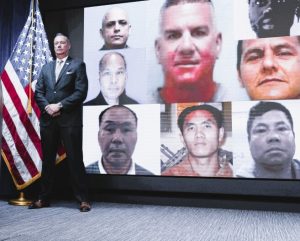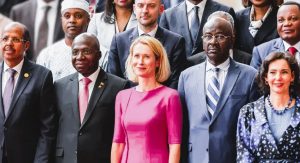Curfew and deaths in South Sudan after revenge attacks on Sudanese
3 min readSouth Sudan is grappling with unrest and violent attacks against Sudanese nationals following a series of retaliatory assaults in response to reported atrocities in Sudan. The tensions have led to a curfew being imposed in South Sudan’s capital, Juba, as authorities struggle to maintain control.
The violence erupted after disturbing footage surfaced showing alleged Sudanese soldiers killing South Sudanese civilians in Wad Madani, a city in Sudan’s Gezira State. The videos, believed to have been filmed within the past few days, show soldiers executing civilians in what appears to be an ethnically motivated attack. Rights groups have confirmed that at least 13 people, including children, were killed, and many in South Sudan have condemned the brutality. President Salva Kiir of South Sudan described the killings as “heinous” and urged Sudan’s government to protect South Sudanese citizens in Sudan, while calling for an international investigation into the deaths.
These killings, which are believed to be part of a wider pattern of ethnic violence in Sudan, have sparked outrage in South Sudan, a country that broke away from Sudan in 2011 after decades of civil war. As Sudan faces its own conflict, triggered by warring factions since April 2023, an increasing number of Sudanese people have fled to South Sudan to escape the violence. Sudan’s humanitarian crisis has worsened, with half of the population – approximately 25 million people – in urgent need of food and aid, according to the United Nations.
In response to the killings and the growing anger in South Sudan, hundreds of young men took to the streets of Juba and other parts of South Sudan, attacking businesses and homes owned by Sudanese nationals. Many of the attackers were reportedly seeking retribution for the deaths of South Sudanese civilians in Sudan. Gunfire was heard throughout the night as security forces tried to restore order. Businesses, particularly Sudanese-owned shops, were looted and burned, and there were widespread reports of chaos in the streets.
On Thursday, the situation escalated, prompting South Sudanese authorities to implement a dusk-to-dawn curfew in Juba. The curfew, which runs from 6:00 p.m. to 6:00 a.m. local time, is aimed at preventing further violence and protecting both public and private property. Police in Juba also rescued 45 Sudanese traders who had been targeted during the violence. These traders are now receiving protection at a police station, where they are being shielded from further harm.
The attacks were not confined to the capital. In Wau, South Sudan’s second-largest city, hundreds of young people attacked Souk Jaw, a market area with many Sudanese-owned businesses. Police responded by firing live rounds into the air to disperse the crowds. Similar protests were reported in Tonj, the home state of President Kiir, though these reports could not be independently verified.
In Juba, businesses, including the major Konyo Konyo market, remained closed on Friday as owners took precautions against further looting and violence. Some bakeries that had opened saw a sharp rise in bread prices, with an increase of up to 17%. The security forces continued to pursue young men suspected of participating in the violence, patrolling neighborhoods and targeting individuals moving between areas where Sudanese nationals lived and worked.
The unrest in South Sudan highlights the deep ethnic and political divisions in the region, which have historical roots dating back to the conflict between the primarily black African South Sudan and the Arab-speaking Sudan. This conflict, which led to South Sudan’s secession in 2011, was characterized by widespread violence and systemic discrimination against the darker-skinned African populations in Sudan. These divisions persist today, with reports of targeted attacks on ethnic groups such as those in Gezira and Darfur.
South Sudanese authorities have vowed to hold accountable those responsible for the violence, and President Kiir has called for calm, urging citizens not to take the law into their own hands. However, the situation remains volatile, with tensions running high, especially as the international community continues to call for an end to the violence in Sudan and for justice for those affected by the conflict.
As South Sudan grapples with the aftermath of these attacks, it is clear that the crisis in Sudan has significant implications for its neighbor, further complicating the already delicate situation in both countries. South Sudan’s government faces the dual challenge of addressing internal unrest while navigating the broader regional instability caused by Sudan’s ongoing civil war.






